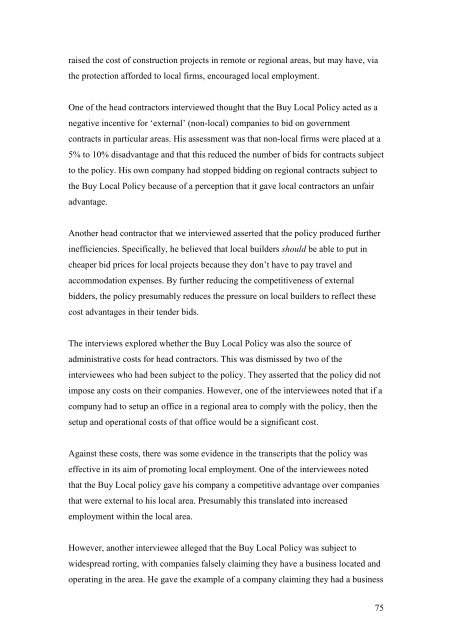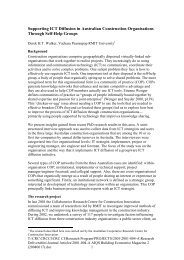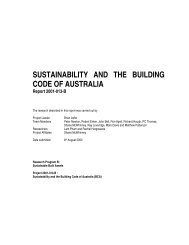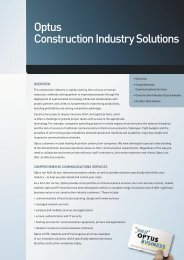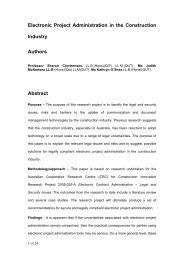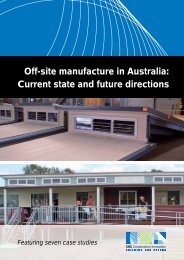Multi Outcome Construction Policy (final report)
Multi Outcome Construction Policy (final report)
Multi Outcome Construction Policy (final report)
Create successful ePaper yourself
Turn your PDF publications into a flip-book with our unique Google optimized e-Paper software.
aised the cost of construction projects in remote or regional areas, but may have, viathe protection afforded to local firms, encouraged local employment.One of the head contractors interviewed thought that the Buy Local <strong>Policy</strong> acted as anegative incentive for ‘external’ (non-local) companies to bid on governmentcontracts in particular areas. His assessment was that non-local firms were placed at a5% to 10% disadvantage and that this reduced the number of bids for contracts subjectto the policy. His own company had stopped bidding on regional contracts subject tothe Buy Local <strong>Policy</strong> because of a perception that it gave local contractors an unfairadvantage.Another head contractor that we interviewed asserted that the policy produced furtherinefficiencies. Specifically, he believed that local builders should be able to put incheaper bid prices for local projects because they don’t have to pay travel andaccommodation expenses. By further reducing the competitiveness of externalbidders, the policy presumably reduces the pressure on local builders to reflect thesecost advantages in their tender bids.The interviews explored whether the Buy Local <strong>Policy</strong> was also the source ofadministrative costs for head contractors. This was dismissed by two of theinterviewees who had been subject to the policy. They asserted that the policy did notimpose any costs on their companies. However, one of the interviewees noted that if acompany had to setup an office in a regional area to comply with the policy, then thesetup and operational costs of that office would be a significant cost.Against these costs, there was some evidence in the transcripts that the policy waseffective in its aim of promoting local employment. One of the interviewees notedthat the Buy Local policy gave his company a competitive advantage over companiesthat were external to his local area. Presumably this translated into increasedemployment within the local area.However, another interviewee alleged that the Buy Local <strong>Policy</strong> was subject towidespread rorting, with companies falsely claiming they have a business located andoperating in the area. He gave the example of a company claiming they had a business75


